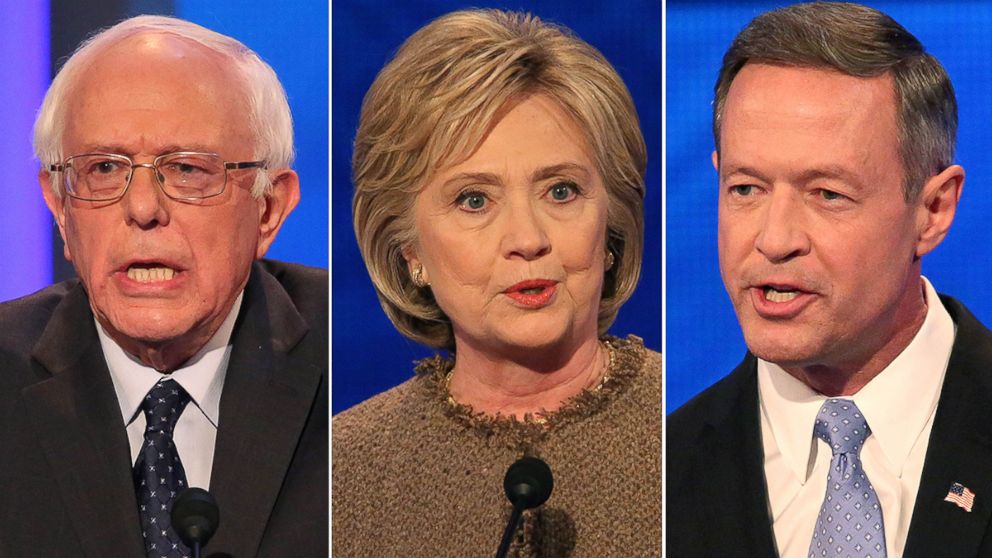5 Ways the Democratic Presidential Debate Did (and Didn’t) Change the Race
MANCHESTER, New Hampshire -- With the clock ticking on the crucial first-in-the-nation state contests in Iowa and New Hampshire, the Democratic presidential candidates took the stage for their third debate during a critical moment in the race for the White House.
Former Secretary of State Hillary Clinton, the current national frontrunner, faced off against Sen. Bernie Sanders and former Gov. Martin O’Malley in the debate, hosted by ABC News, over national security, domestic policy and the big story owning the last 48 hours –- Sanders' campaign staff accessing Clinton's voter data after a software breach.
Here are five ways this debate did (and didn't) change the battle for the Democratic presidential nomination:
1. The Voter Data Breach Was Almost Over Before It Began
Just 48 hours after news that Sanders staffers had searched through Clinton's private voter data, it seemed like both candidates were ready to move past it.
Right out of the gate, Sanders explicitly apologized Clinton for the staff members who accessed her data during a breach in a DNC vendor's computer software.
"Yes, I apologize," he said when asked by ABC News' David Muir whether Clinton was owed an apology. "Not only do I apologize, I want to apologize to my supporters. This is not the kind of campaign that we run."
The apology came as a stark departure from the last day of feuding aides on both campaigns, with Clinton's staff calling the incident an "egregious breach of data and ethics" and Sanders accusing Clinton of being in cahoots with the DNC.
A few loose ends are left to tie up: The Sanders campaign announced last night that two more employees had been suspended in light of an ongoing investigation, and the campaign's lawsuit against the DNC is still active in federal court.
2. Hillary Clinton Is Already Focusing on the General Election
No votes have yet been cast for the Democratic presidential nomination, but don't tell Hillary Clinton. She's already fighting the Republicans.
The former secretary of state, who has a sweeping national lead and is largely favored to win the nomination, made a point to mention her GOP opponents in both her opening and closing statements.
"It's very clear that we have a distinct difference between those of us on this stage tonight and all of our Republican counterparts," she said. "From my perspective, we have to prevent the Republicans from rolling back the progress that we've made."
She also bashed the Republicans over Donald Trump's recent proposal to ban Muslims from entering the United States.
"I worry greatly that the rhetoric coming from the Republicans, particularly Donald Trump, is sending a message to Muslims here in the United States and literally around the world that there is a clash of civilizations," she said, going on to cite her concerns over what will happen with gay rights and social security if Republican wins.
Republicans, of course, did not agree.
"Hillary Clinton once again proved inconsistent on the issues and out of touch with the American people," RNC Chair Reince Priebus said in a statement.
3. It's Do-or-Die For Martin O'Malley
The clock is ticking on the presidential hopes of Martin O'Malley.
Stuck in the single digits in every recent national and early state poll, the former Maryland governor has failed to break into the Clinton-Sanders rivalry so far.
So he pulled out all the stops, choosing to lash out against his two Democratic foes on the debate stage.




